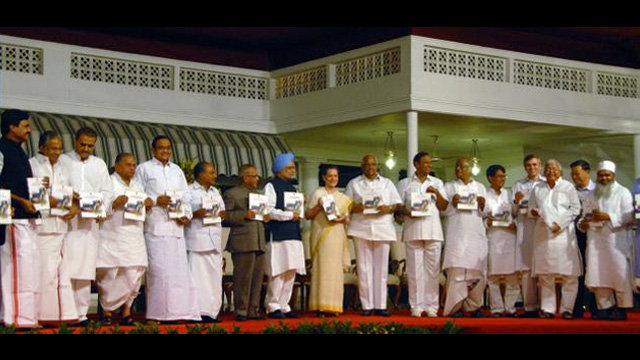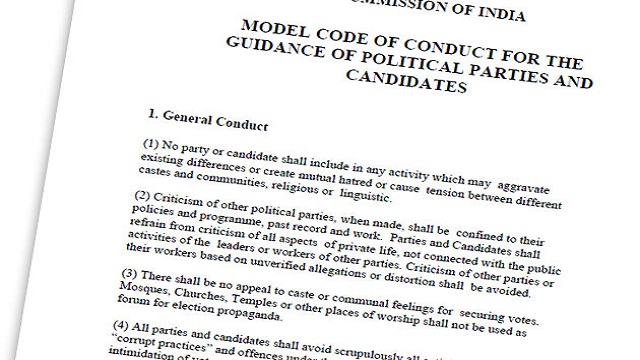It seems the UPA government has already accepted its defeat in the 2014 general elections. At least its actions are saying so.
The UPA government has opened its goodie bag for all. All kinds of social security schemes and policies to woo the voters are in place. But it seems the UPA government has already accepted its defeat in the 2014 general elections. At least its actions are saying so.
The setting up of the Commission, whose recommendations will benefit about 50 lakh central government employees, including those in defence and railways, and about 30 lakh pensioners, comes ahead of the Assembly elections in 5 states in November too.
It may have brought smile on the faces of government employees and pensioners, but its burden will affect the working of the next government. It will increase the government’s payout burden by an estimated Rs 1 lakh crore.
Even as productive investment is being cut to meet fiscal targets, the government is not ceasing to make wasteful consumption expenditure.
According to a report in the CNBC-TV18, the commission has been constituted much earlier than usual. A pay commission is usually formed after every 9 years. The government constitutes Pay Commission almost every ten years to revise the pay scales of its employees and often these are adopted by states after some modification.
As the Commission takes about two years to prepare its recommendations, the award of the seventh pay panel is likely to be implemented from January 1, 2016, finance minister P Chidambaram said in a press conference.
The sixth Pay Commission was implemented from January 1, 2006, fifth from January 1, 1996 and fourth from January 1, 1986. The names of the chairperson and members of the 7th Pay Commission and its terms of reference will be finalised shortly after consultation with major stakeholders, Chidambaram said.
With the arrival of popular Narendra Modi in the scene and its weakening position day by day, perhaps UPA thought it will be good to create trouble for the next government rather than fixing problems.
As expert Dhiraj Nayyar too wrote in his article, by forcing a Pay Commission, which will lead to a rise in Government expenditure by at least 1.5 percent of GDP (assuming Centre and states implement it), the UPA is limiting the next Government’s expenditure management options.
Public investment expenditure (on infrastructure for example) will be ultimately affected by this decision which will cost the country in terms of economic growth.
At the time when bureaucracy in the country needs to be reformed, setting up of new pay commission looks utter nonsense. Nayyar wrote, “India’s bureaucracy is bottom heavy with far too many people engaged in low productivity roles in what are called class III and class IV jobs (peons, clerks, secretaries etc). The flab at the bottom of the pyramid needs to be cut. The Government also needs to take a call on a number of wasteful ministries in the Central Government and the staff that is deployed in them.”
Similar was the case with the food security scheme where government will incur huge expenditure. It is not only going to slow down the economy, it is also going to cost 3% of the GDP. This will, again, fall on the next government’s head.
And for once, let’s say, UPA wins the next elections. In that scenario, it will be the victim of its own ploy. Someone needs to tell the government that it is cutting the same branch it is sitting upon.





